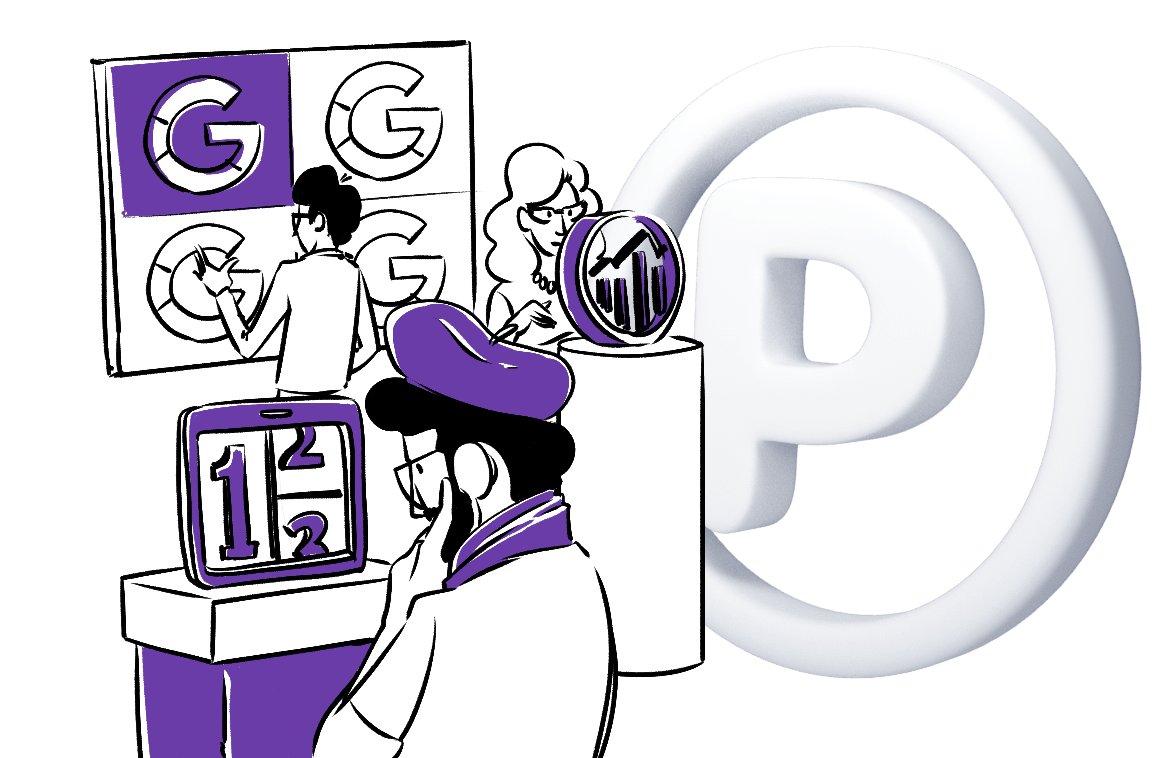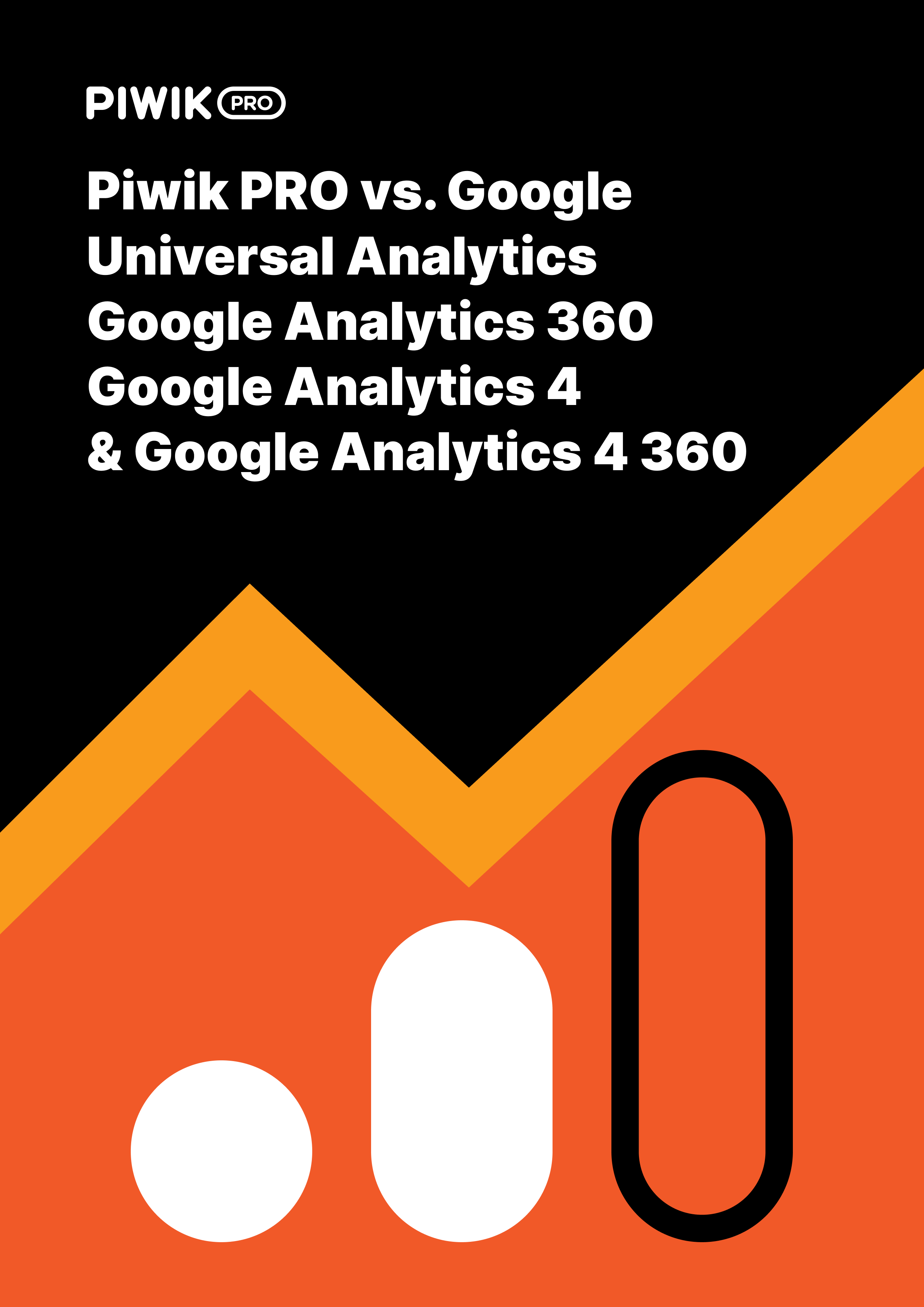Google Analytics is the top player when it comes to tracking website visitors, no one argues with that. The value of the platform is reflected in its popularity, which is why it’s the market leader boasting an 84.1% share. That’s a strong argument.
Even though some consider Google Analytics the standard, there are reasons to ask if it’s really the perfect choice for your marketing setup. It’s crucial to get a grasp of issues which might be out of view if you focus solely on one tool.
If your organization handles data on a daily basis, you should know there are some other analytics platforms offering extensive functionality. In this post we’d like to share some reasons why you might consider Google Analytics alternatives.
We realize that the range of offered capabilities is vast, and every business might be looking for different ones to make analytics easier. With that in mind, we’ve addressed more universal issues. Here are the criteria we’ve taken into consideration:
1. Deployment on premises and in a private cloud
Why is deployment so crucial? If your organization handles personal data and personally identifiable information (PII) on a daily basis, you need to make sure all your processes are in line with legal regulations. You might have to keep data in your country owing to data residency and sovereignty laws. Additionally, privacy and security legislation such as GDPR, HIPAA or European Banking Authority guidelines impose certain obligations.
In this section we explore the importance of those deployment options.
Privacy and security compliance
A lot has been said already about cloud deployment of web analytics tools, as it seems to be the most convenient method. Why is that? It’s popular for a few simple reasons: it’s free, it cuts maintenance costs, offers ease of scalability, and doesn’t require the purchase of additional infrastructure. But is this a perfect choice?
Google Analytics is said to be free, but don’t be misled: the hidden costs are to be found somewhere else. In the case of GA, a cloud-hosted option, it might be the cost of data security and compliance.
The “fine print” of Google’s Terms of Service says that you “pay the price” in the form of ownership. Primarily, Google claims the right to retain and utilize your data. It’s stated in their policy as follows:
“Google and its wholly owned subsidiaries may retain and use, subject to the terms of its privacy policy (located at https://www.google.com/policies/privacy/), information collected in Your use of the Service.”
In practice, it means sharing your information with third parties. What’s more, a violation of the ToS can result in termination of your account and the loss of all your data.
This is definitely not the scenario you want to play out. Having full control over your users’ details and data storage is a tricky matter considering the growing demand for privacy-friendly services.
It’s even more complicated because of constantly changing data protection legislation around the globe and tight security regulations. The GDPR and HIPAA add more weight to the issue and are turning things into a real legal compliance nightmare.
Consider web analytics software which enables you to store the software and all of your data on your own infrastructure or a private cloud, so you have complete control over your data. With the right tool, you can gather and save PII together with other sensitive details.
You can find alternatives to Google Analytics on the market, such as Countly Enterprise, that also help your organization meet those needs. With Piwik PRO, you can hold your customers’ information on a public cloud in the US/EU, private cloud in a dedicated database or dedicated hardware in one of 60+ Azure regions, and Elastx.
Data residency
Bear in mind that if your company operates in multiple countries, you need to be aware of numerous challenges resulting from the obligations of both local data privacy laws and international regulations.
Certain countries across the globe, like Australia, Canada, China, Germany, India, Russia, and Switzerland, have introduced laws that order companies to store residents’ personal data within the nation’s physical borders.
Furthermore, if you collect and process information on residents of the European Union, it is strongly advisable to keep it on servers situated there. Non-compliance with such requirements puts your business at risk of heavy fines.
Those demands are hard to meet if you employ Google Analytics, as it saves your data across different Google data centers, and you never know exactly where. Here’s the whole list of server locations.
As we’ve already mentioned, not all vendors are the same and you can find Google Analytics alternatives that enable you to keep data in the place of your choice, be it Piwik PRO or Countly Enterprise.
To get more background on data residency check out our post: 4 burning questions about onboarding personal data and personally identifiable information (PII) to your analytics platform
2. Data usage, storage and tracking flexibility
No matter how advanced the technology is, all software has its restraints. When you select tools for your marketing arsenal, you need to minimize the impact of restrictions on your organization.
This is where Google Analytics’ downsides come into view.
Primarily, there’s a data limit of 10 million hits per month. For a site with high traffic volumes, it’s a significant obstacle. You have three options. Upgrade to GA360, which comes with an exorbitant price. Send fewer hits. It means sampling your data which will curb your analyses. Or you can upgrade app tracking to Firebase, which is a GA platform with unlimited reporting for up to 500 distinct events, but just for tracking mobile apps.
All said, you have no guarantee your results will be accurate. Consequently, analyzing your metrics gets way more difficult. Further constraints apply to the number of properties, goals and transactions you can track.
For your web tracking analysis to be handy, you want to have a tool that provides more flexibility, so you could get:
- unlimited volume of page views
- long-term data storage
You can’t get these capabilities with Google Analytics, but vendors such as Adobe Analytics and Piwik PRO make it possible.
The more flexibility the tool provides, the easier it is to analyze the results. It’s worth considering software that lets you freely track as many actions, events and properties as you want. This is how you get deep knowledge that allows you to reach your particular goals.
GA4 auto migration process
GA4 auto migration process
On February 9, 2023 Google said they would start configuring Google Analytics 4 for users in March 2023.
This means that if you have a Universal Analytics (UA) property but haven’t migrated to GA4, Google will create a GA4 property based on many of the settings you have in UA, such as your goals, audiences, Ads links, users, and more. Moreover, even if you have already set up GA4, you might still be subject to auto migration.
UPDATE: On July 1, 2023, Google sunsetted Universal Analytics (UA) and replaced it with its next-generation measurement tool, Google Analytics 4 (GA4). That means that standard UA properties have stopped processing new hits.
Read more on GA4 auto migration in GA4 migration problems: What are the alternatives
3. Access to unsampled and raw data
Your business strategy relies heavily on the data you acquire, so it’s crucial to get access to a full set of data, not just samples. In the case of Google Analytics, there’s a risk that if you exceed the threshold of 500k sessions in a month, then your data will be sampled.
It means that your reports might be misleading, as they’re based only on certain data sets. The truth is that if you have high traffic on your site, then you can easily reach such a threshold.
Of course, you could upgrade to GA 360, but that comes with a hefty price tag. Still, there’s another way for your reporting to be as precise as you need.
Opt for Google Analytics alternatives, for instance, Adobe Analytics, Countly Enterprise or Piwik PRO, which provide you with unsampled data to help you to make better, informed decisions.
Find out more details on sampling in our post: What is data sampling and why should you avoid it?
Moreover, with access to raw data, you gain more details in your reports and a lot of flexibility to make advanced evaluations. This type of data is unprocessed, so you can mold it exactly as you want, then wield it to, among other things, create precisely targeted audience campaigns, solve data discrepancies issues and improve your analysis.
Curious how to apply this data? Read our post: How to analyze multi-channel attribution in affiliate marketing using raw data
Unfortunately, Google Analytics won’t grant you this option. With access only to aggregated information, your reports may lack certain valuable details.
4. Professional service and support
Now, let’s say you face some technical challenges, your tracking strategy isn’t working as you expect, or you just want to learn more about the ins and outs of the software you have. With Google Analytics in these scenarios, you have to work things out on your own. You will have large online documentation at your fingertips and you can reach out to the community.
Various vendors, be it Adobe or Countly, share this approach with Google. But customer care and services are something more than just providing instructions and answering technical questions.
For instance, Piwik PRO teams help you solve all these issues and plenty of others. You get a dedicated account manager and a service delivery manager that learn about your expectations and needs to find the right answer.
Apart from self-guides and a help center, you can count on personalized onboarding and support. Finally, you get 24/7 monitoring and incident handling, so any error is spotted and fixed right away.
The exact support and customer care options available to you depend on the chosen plan. Read our professional services page for further details.
Final thoughts
The tech giant has established its dominant market position and helped many organizations to benefit from website tracking. However, there’s still more that could be achieved. Thankfully, certain Google Analytics alternatives fill those gaps, and it’s definitely worth considering them.
Some might require financial resources, but what if that means more security, full legal compliance and added capabilities? We hope that this post has given you some food for thought. You probably still have some doubts and questions – we’re here to make things clear, so don’t hesitate to…












